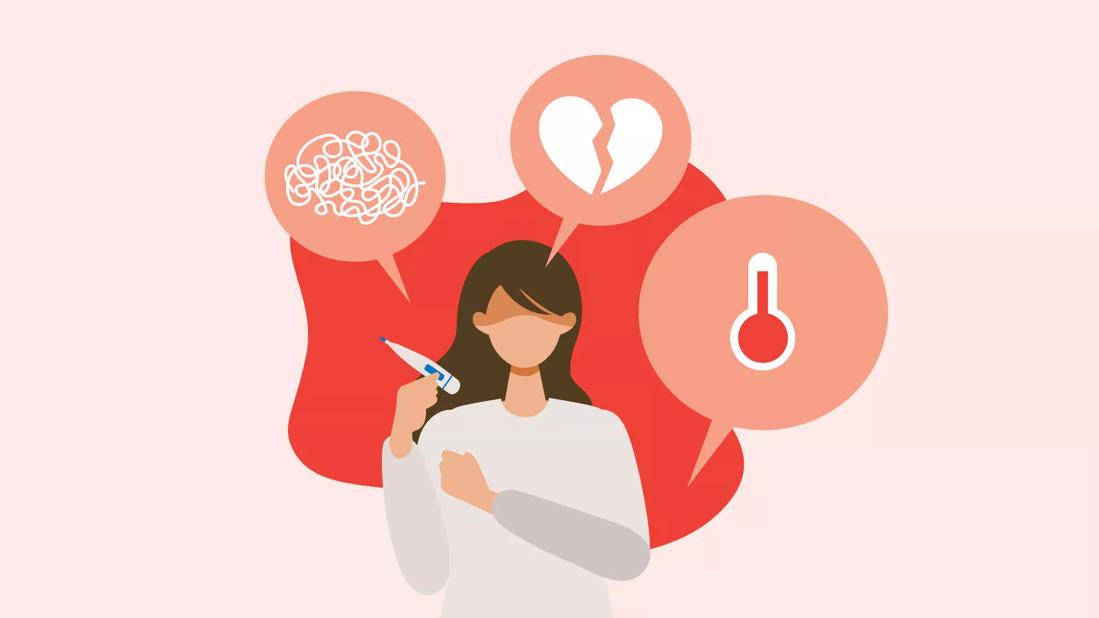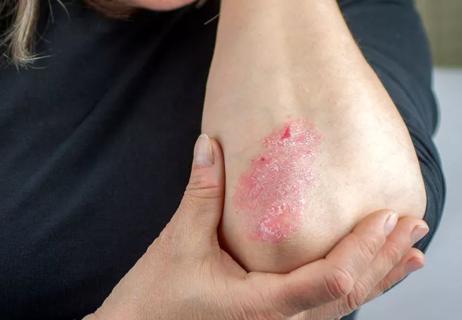From nausea, weight gain and eczema, stress can affect your immune system in many ways

For most of us, stress is just a part of life. It can last for a few hours, like the time leading up to a final exam. Or it can be more long-term, like when taking care of an ailing loved one.
Advertisement
Cleveland Clinic is a non-profit academic medical center. Advertising on our site helps support our mission. We do not endorse non-Cleveland Clinic products or services. Policy
Whatever the cause, no one enjoys the feeling of stress. But can stress actually make you sick?
In short: Yes. In fact, along with causing eczema, unwanted weight gain and nausea, stress can even weaken your immune system. “Eliminating or modifying different stress factors in your life is vital to protect and increase your immune response,” says clinical immunologist Leonard Calabrese, DO.
Dr. Calabrese offers insight on how stress impacts your immunity and what you can do to minimize the effect.
Believe it or not, stress isn’t all bad. In fact, acute stress is the part of us that helps protect us and make us more alert.
When you start feeling stressed, it causes your body to produce greater levels of the stress hormone cortisol. In short spurts, cortisol can boost your immunity by limiting inflammation. “But over time, when your body reaches chronic stress, your body can get used to having too much cortisol in your blood. And this opens the door for more inflammation,” Dr. Calabrese explains.
In addition, chronic stress decreases your body’s lymphocytes — the white blood cells that help fight off infection. The lower your lymphocyte level, the more at risk you are for viruses, including the common cold and cold sores. This is when you can start experiencing a “stress-induced sickness.” Your immune system starts to feel weaker, so it can’t fight against infections or diseases as well.
Advertisement
High stress levels also can cause depression and anxiety, which also can lead to higher levels of inflammation. In the long-term, sustained, high levels of inflammation point to an overworked, over-tired immune system that can’t properly protect you.
Chronic inflammation can accompany unmanaged high stress levels, which can contribute to the development and progression of many diseases of the immune system like:
Under sustained, long-term stress, you also can develop cardiovascular problems, including a fast heart rate and heart disease, as well as gastric ulcers. You’ll also be at greater risk for Type 2 diabetes, certain cancers and mental decline.
At this point, you might be thinking, “That’s quite the list of associated conditions!” Certainly, stress can be stressful enough on its own. But this information isn’t meant to cause you more stress. Instead, try to see it as a reason to prioritize your own health and give yourself time and space to focus on honing your stress management techniques.
Stress reduction strategies not only give your mind a break, but they can also relieve the pressure stress creates on your immune system.
“You can take steps to reduce short-term and long-term stress,” Dr. Calabrese reassures.
Here are just a few helpful tactics for reducing stress and boosting your immune system:
Meditating three to four times weekly can do wonders for reducing your stress levels. It doesn’t have to be long — just 10 to 15 minutes to find a calm moment with yourself. Meditation reduces your cortisol levels and reduces inflammation. You can also practice mindfulness during your everyday life.
Another big part of our overall health is the food we eat. Be sure to eat a balanced diet of fruit, protein, grains and vitamins to help keep your immune system running smoothly. In the same vein, you can also try incorporating foods like fish, berries and whole grains that have been shown to help with brain health. And sleep affects a big part of stress levels as well, so make sure what you’re eating is helping you wind down before bed, too.
Practicing yoga lowers stress hormone levels and calms your nervous system to reduce inflammation. Deep breathing helps boost your resistance to infection. Inverted poses in yoga help circulate fluid through your lymphatic system, filtering out toxins.
Plus, there are so many types of yoga classes and routines out there, there’s something for everyone. Depending on your level and what kind of stress you’re experiencing, here are some yoga types to consider:
Advertisement
Lack of sleep can put you at risk of higher stress and weakening your immune system. So, it’s important to make sure you’re getting the recommended amount each night — around seven to nine hours if you’re an adult. Also, having a calming morning and bedtime routine helps you have a balanced rhythm during the day, which can help reduce any stressors that may come your way.
While we all experience stress, each person’s relationship to it is different. You know what is most likely to stress you out, so it can be helpful to identify these triggers, journal about them and be prepared with a plan of relaxation to calm yourself the next time they pop up.
Remember, stress in acute situations can be healthful and protective, so it’s not all bad for us. It’s chronic stress that we seek to manage. Listen to your body and take note if the stress you’re feeling is constant or situational. Either way, there are tactics for coping.
If you feel like your stress levels aren’t improving even after lifestyle changes, be sure to talk to a healthcare provider about how they can help.
Advertisement
Learn more about our editorial process.
Advertisement

Even small moments of time outdoors can help reduce stress, boost mood and restore a sense of calm

Fill your coping toolbelt with healthy skills like getting outside, writing in a journal, volunteering, laughing or talking with a friend

We all experience some stress from time to time, but chronic stress can contribute to health issues like diabetes and cardiovascular disease

Getting outside, eating a healthy diet, taking up journaling, listening to music — even cuddling a pet — can provide stress relief

Give these 30+ grocery items a try to help find relief

In response to stress or danger, your brain responds by either defending itself, running away, stopping or reconciling

Stress hormones trigger cravings in an attempt to keep us safe from danger

From stomachaches and hives to sleepless nights and missed periods, stress can make an impact

Wearing a scarf, adjusting your outdoor activities and following your asthma treatment plan can help limit breathing problems

Your diet in the weeks, days and hours ahead of your race can power you to the finish line

When someone guilt trips you, they’re using emotionally manipulative behavior to try to get you to act a certain way